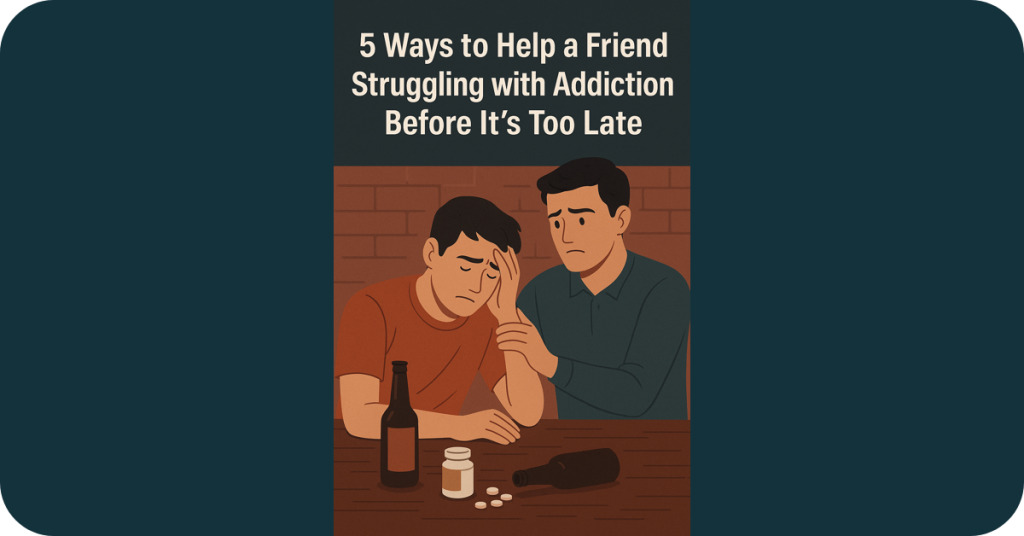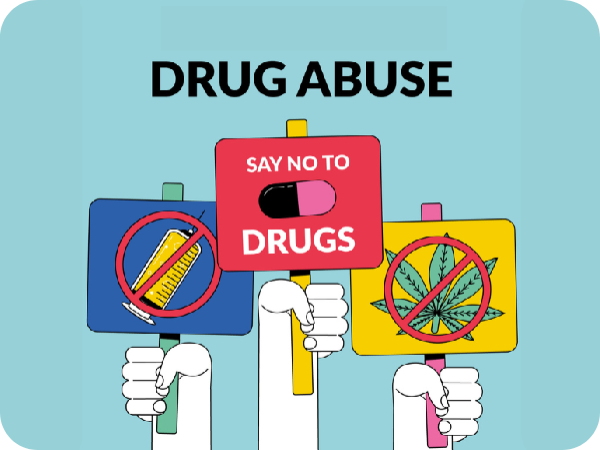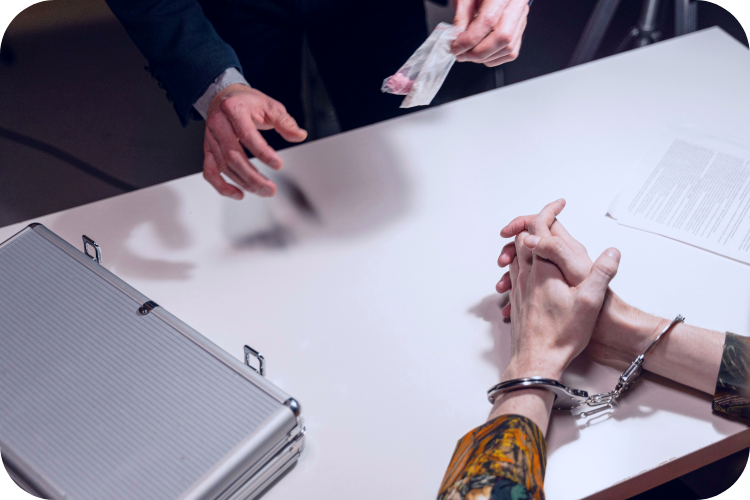
Your Friend Needs You More Than You Think
“I thought it was just a phase. I didn’t want to pry, so I kept quiet. Now, every day, I wish I’d spoken up before it was too late.”
Learning how to help a friend struggling with addiction is one of the hardest things you may ever face. It’s easier to pretend nothing’s wrong but that silence can cost a life. Addiction often hides behind smiles and excuses, but your awareness and action can make all the difference.
This guide will empower you with practical, compassionate ways to help a friend struggling with addiction before it’s too late.
Why We Stay Silent – The Psychology Behind Inaction

When you notice troubling signs in a friend, the first instinct is often to stay silent. The most common excuse? “I didn’t want to make things worse.”
Fear of Overreacting or Losing the Friendship
It’s natural to fear confrontation or rejection. You might worry that bringing up drug use will push your friend away or damage your relationship. This fear is normal but can be a barrier to providing the addiction support for friends that is desperately needed.
The Cost of Waiting Too Long
Addiction worsens over time. The longer you wait, the smaller your window to intervene effectively becomes. Early intervention can prevent irreversible damage, but procrastination allows addiction to escalate silently.
Emotional Barriers vs. Real Risks – A Comparison Table
| Why We Hesitate | What Actually Happens |
| “It’s not that serious yet” | Addiction escalates silently |
| “They’ll get mad at me” | True friends care more than they’re angry |
| “I don’t know what to say” | Saying something is better than nothing |
Is It Really Addiction? Use This Checklist to Be Sure
Helping someone starts with recognizing there’s a problem. Addiction can be disguised as stress or bad habits, but there are clear signs. for a better understanding visit bewareofdrugs.com
Emotional and Behavioral Signs
- Secrecy about whereabouts or activities
- Sudden mood swings or irritability
- Loss of interest in hobbies or socializing
- Withdrawal from family and friends
- Neglecting responsibilities at work, school, or home
- Financial issues or frequently borrowing money
- Risk-taking or legal troubles
Physical Signs of Drug or Alcohol Abuse
- Bloodshot or glazed eyes, unusual pupil size
- Noticeable weight changes
- Poor hygiene or neglect of appearance
- Slurred speech, shaking hands, or tremors
- Unexplained injuries or frequent nosebleeds
Self-Check: 7 Signs Your Friend Might Be Struggling with Addiction
- They’ve become distant or isolated
- You’ve caught them lying about whereabouts or usage
- They cancel plans or skip responsibilities
- Money disappears or they ask to borrow often
- Mood swings or unusual irritability
- You’ve noticed physical signs like slurred speech or tremors
- Your gut says something isn’t right
5 Proven Ways to Help a Friend Struggling with Addiction

“Don’t try to fix them. Just be the person they feel safe turning to.”
1. Lead with Compassion, Not Confrontation
When approaching a friend about addiction, your tone and attitude can make all the difference. Leading with compassion means prioritizing understanding over judgment. Instead of accusing or blaming, focus on expressing your concern and care. For example, you might say:
“I care about you, and I’ve noticed some changes lately that worry me. I’m here to listen whenever you want to talk.”
This approach reduces defensiveness and opens the door to honest dialogue. Avoid phrases that sound like ultimatums or criticisms, such as “You need to stop” or “You’re ruining your life.” These can push your friend further away. Remember, addiction often comes with shame and guilt your compassion can help break through that barrier.
Practical tip: Practice what you want to say beforehand. Keep your language simple, non-accusatory, and focused on your feelings rather than their behavior. For example, “I feel worried when I see you cancel plans” is more effective than “You’re always unreliable.”
Keyword: Talk to a friend about drug use
2. Choose the Right Moment and Setting
The timing and environment for this sensitive conversation are crucial. Pick a moment when your friend is sober, calm, and not distracted by other stressors. Avoid bringing up the topic in public, during arguments, or when either of you is rushed or emotional.
A private, quiet place where you won’t be interrupted—like a home, park, or quiet café is ideal. This setting helps your friend feel safe and respected, increasing the chance they’ll open up.
Example: Instead of confronting your friend right after a party or during a stressful day, wait for a relaxed weekend afternoon when you both have time. You might say, “Can we talk? I’ve been meaning to check in with you about something important.”
Additional tip: Pay attention to their body language and mood. If they seem defensive or closed off, it might be better to pause and try again later. Respecting their readiness shows empathy and patience.
3. Offer Support, Not Ultimatums
Addiction is complex, and recovery is rarely a straight line. Instead of issuing ultimatums like “If you don’t stop, I can’t be your friend,” focus on expressing your willingness to support them through their journey.
Say things like:
“I’m here to support you whenever you’re ready to get help.”
“You don’t have to face this alone.”
This kind of support reduces feelings of isolation and shame, which are common in addiction. Ultimatums often trigger resistance and denial, while gentle support encourages openness.
How to support practically: Offer to help find resources, attend support meetings with them, or simply be available to listen. Sometimes, just knowing someone is on their side can motivate a person to seek help.
Warning: Avoid enabling behaviors, such as giving money or covering up for them. Support means helping them face the consequences while standing by their side.
4. Help Them Take the First Step Toward Professional Support
One of the biggest hurdles for someone struggling with addiction is asking for help. You can make this easier by offering concrete assistance in connecting with professional resources.
- Research local treatment centers, therapists, or support groups ahead of time.
- Offer to make the initial call or appointment for them.
- Volunteer to accompany them to a meeting or doctor’s visit for moral support.
Example: “I found this treatment center that has great reviews. If you want, I can call them with you or go with you to check it out.”
Providing this kind of hands-on help removes some of the overwhelm and fear that often prevent people from seeking treatment. It also shows your commitment and belief in their ability to recover.
Bonus: Share hotlines and online resources they can access anytime:
- National Helpline (USA): 1-800-662-HELP (4357)
- Online support communities like Reddit r/StopDrinking or Facebook recovery groups
5. Stay Consistent—Even If They Pull Away
Addiction can cause people to isolate themselves, even from those who care most. Your friend might push you away or refuse help initially. This is common and doesn’t mean they don’t value your support.
Keep reaching out with gentle, non-pressuring messages like:
“Just wanted to check in and let you know I’m here whenever you want to talk.”
“Thinking of you today. No pressure just care.”
Consistency shows that your care is unconditional and that you’re a stable presence in their life. Over time, this can build trust and encourage them to open up when they’re ready.
Important: Respect their boundaries. If they ask for space, give it, but don’t disappear completely. Balance persistence with patience.
Example: If they ignore your texts for a week, try sending a simple message like, “Hope you’re doing okay. I’m here when you need me.” Avoid flooding them with messages or demands, which can backfire.
When You Need to Step Up: Contacting Authorities or Emergency Services

Sometimes, the situation becomes critical and requires immediate action.
Signs of Immediate Danger
- Overdose symptoms: unconsciousness, difficulty breathing
- Suicidal thoughts or threats
- Violent behavior or threats to others
- Children or vulnerable individuals at risk
- Escalating crisis beyond your control
When It’s Time to Call for Help
- Your friend is unconscious or overdosing
- They threaten harm to themselves or others
- There are minors in danger
- The situation is escalating beyond your control
Don’t Let Guilt Stop You from Saving a Life
Calling emergency services or authorities is not betrayal it’s an act of protection. Your intervention could be the difference between life and death.
If Nothing Seems to Work: What to Do When They Refuse Help

“You can’t force them to change but you can refuse to walk away.”
Set Boundaries Without Cutting Ties
Show care without enabling destructive behavior. For example, avoid lending money that might be used for drugs but remain emotionally available.
Protect Your Own Mental Health
Supporting someone with addiction is emotionally taxing. Seek out support groups like Al-Anon or online forums, and consider professional counseling for yourself.
Keep the Door Open for When They’re Ready
Say:
“I’ll be here when you are ready for help no judgment.”
This reassures your friend that your support is unconditional.
What Not to Say
| Say This | Avoid This |
| “I’m worried about you.” | “You need to stop or else.” |
| “I’m here to support you.” | “You’re ruining your life.” |
| “You don’t have to do this alone.” | “This is your fault.” |
Conclusion
Supporting a friend struggling with addiction is one of the most challenging yet profoundly impactful things you can do. While the journey may be slow and filled with setbacks, your consistent compassion, patience, and willingness to stand by them can plant the seeds of hope and recovery. Remember, addiction thrives in silence and isolation your voice and presence can break through that darkness. Even when progress feels invisible, your support matters more than you realize.
“Your friend may not be ready now but when they are, they’ll remember who stood by them. Be that person.”
FAQS
1. What are the early signs of addiction in a friend?
Early signs include secrecy about activities, mood swings, withdrawal from social circles, neglecting responsibilities, financial problems, and physical symptoms like bloodshot eyes or tremors
.
2. How can I talk to a friend about drug use without pushing them away?
Approach the conversation with compassion, choose a private and calm setting, focus on your feelings rather than accusations, and avoid ultimatums to keep the dialogue open and supportive
.
3. What are effective ways to support a loved one with addiction?
Offer emotional support without enabling, help them find professional resources, accompany them to appointments, and stay consistent in your care even if they pull away
.
4. When should I seek professional help or emergency services for a friend struggling with addiction?
Call for help immediately if your friend shows overdose symptoms, threatens self-harm or others, exhibits violent behavior, or if vulnerable individuals are at risk
.
5. How do I avoid enabling my friend while still offering support?
Set clear boundaries such as not lending money or covering up for their behavior, while remaining emotionally available and encouraging them to face consequences responsibly
.
6. What should I do if my friend refuses help despite my efforts?
Keep the door open by regularly checking in without pressure, seek support for yourself through groups like Al-Anon, and maintain your own mental health while waiting for them to be ready
.
7. How can I recognize if my friend’s behavior is addiction or just stress?
Look for a combination of emotional, behavioral, and physical signs that persist over time, such as isolation, mood swings, neglect of hygiene, and risky behaviors, which differentiate addiction from normal stress.
- Is Vaping Harmful? The Real Risks You Need to Know (2025 Update) - May 20, 2025
- How to Choose the Right Rehab Center: 5 Critical Things to Know - May 1, 2025
- How to Prevent Child Drug Use: Every Parent Should Know - April 27, 2025